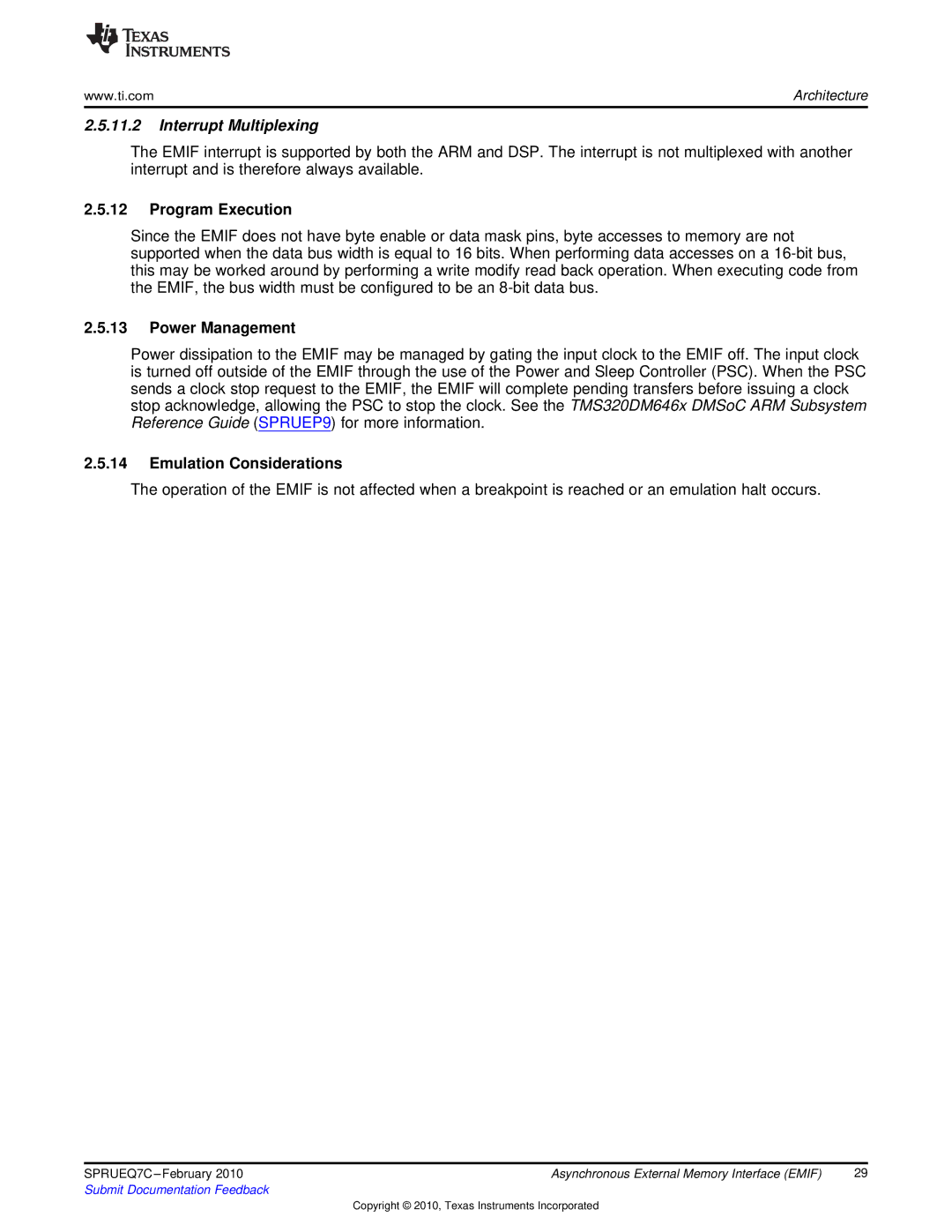
www.ti.com | Architecture |
2.5.11.2Interrupt Multiplexing
The EMIF interrupt is supported by both the ARM and DSP. The interrupt is not multiplexed with another interrupt and is therefore always available.
2.5.12Program Execution
Since the EMIF does not have byte enable or data mask pins, byte accesses to memory are not supported when the data bus width is equal to 16 bits. When performing data accesses on a
2.5.13Power Management
Power dissipation to the EMIF may be managed by gating the input clock to the EMIF off. The input clock is turned off outside of the EMIF through the use of the Power and Sleep Controller (PSC). When the PSC sends a clock stop request to the EMIF, the EMIF will complete pending transfers before issuing a clock stop acknowledge, allowing the PSC to stop the clock. See the TMS320DM646x DMSoC ARM Subsystem Reference Guide (SPRUEP9) for more information.
2.5.14Emulation Considerations
The operation of the EMIF is not affected when a breakpoint is reached or an emulation halt occurs.
SPRUEQ7C | Asynchronous External Memory Interface (EMIF) | 29 |
Submit Documentation Feedback |
|
|
Copyright © 2010, Texas Instruments Incorporated
